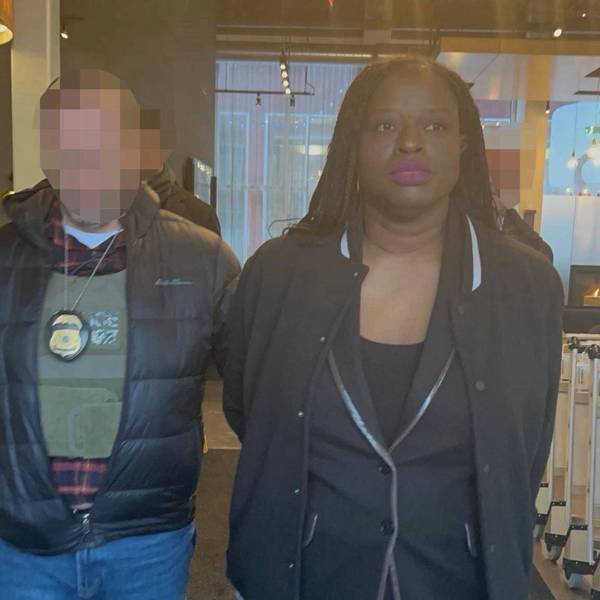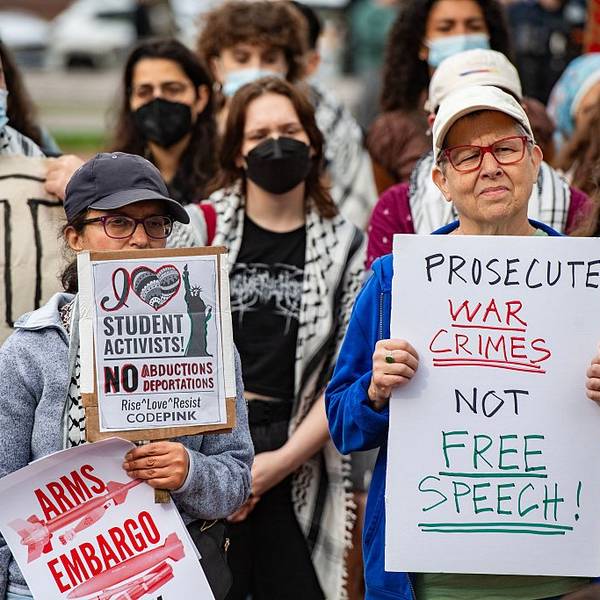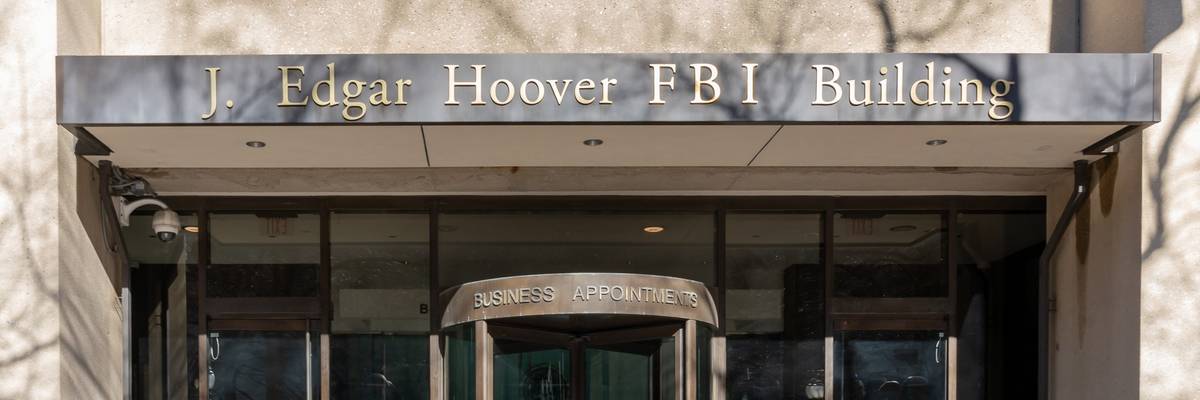In one of the few relatively benign moments of Dave Chappelle's last appearance on Saturday Night Live, the comedian made an interesting observation: The complaints that some white Americans have made about law enforcement in recent years are complaints that African Americans have made about law enforcement for decades.
"Man, we can't trust the government," Chappelle said in his faux southern accent. "[Black people] have been on that. Man, we should dismantle the FBI. Word to Martin Luther King, bro. We've been on that."
Writing the jokes out doesn't do justice to the delivery, but you get the idea.
The memory of Chappelle's riff came to me last week, when conservative pundits and lawmakers railed against the FBI over an internal memorandum that proposed a strategy to address the purported threat of "radical traditional Catholic ideology."
The FBI memo says that followers of this ideology, abbreviated as RTC, are characterized by a rejection of reforms made during Vatican II, a "disdain for popes elected since then, particularly Popes Francis and John Paul II," and "adherence to antisemitic, anti-immigrant, anti-LGBT, and white supremacist ideology."
If you replace every instance of "church" and "radical traditional Catholic" in the FBI memo with "mosque" and "radical Islamic terrorist," the memo would read like the typical way the government has thought about and addressed the American Muslim community over the past 20 years.
To mitigate the threat of "RTCs," the memo advises, the FBI should engage in something called "tripwire," "source development," and outreach to "traditional Catholic parishes," among other things. The memo also identified conservative Catholic political stances, such as opposition to abortion, as potential triggers for acts of terrorism in the run-up to the 2024 election.
When the FBI memo first went public earlier this year, it sparked outrage among Catholics who felt it was inappropriate or even unconstitutional for the government to target the Catholic community in this way.
Conservative politicians and media personalities also latched onto the issue, exaggerating the content of the memo and using it as a new political cudgel in their ongoing feud with the bureau over its investigations of Donald Trump.
In response to such backlash, the FBI withdrew the memo and insisted it was the work of only one local field office. But a new report last week showed that multiple offices contributed to the memo and sparked renewed outrage.
As a Muslim civil rights attorney who has seen the injustices that can occur when law enforcement starts treating faith communities as suspect, I understand the concerns that Catholic voices have raised about the FBI memo.
Although every law enforcement agency has a duty to prevent and investigate crimes, the government has no business planting informants in churches, enlisting priests to help spy on community members, or equating acts of conservative piety with signs of extremism.
Even though I sympathize with some of the concerns raised about the FBI memo, I also cannot help but wonder: Where was the outrage when the federal government used identical thinking and tactics to target the Muslim community?
Indeed, if you replace every instance of "church" and "radical traditional Catholic" in the FBI memo with "mosque" and "radical Islamic terrorist," the memo would read like the typical way the government has thought about and addressed the American Muslim community over the past 20 years.
From New York to Los Angeles and cities in-between, federal and local law enforcement have used spies to infiltrate and monitor mosques.
Federal Countering Violent Extremism programs were used to build ties between law enforcement and Muslim community organizations, who would then be used to monitor, counter, and report signs of extremism.
Law enforcement training materials at the local and federal level have used explicitly anti-Muslim tropes. And only God knows how many internal memos have been dedicated to equating Islamic practices like growing a beard or praying regularly at a mosque with signs of extremism.
Yet some of the same voices who enthusiastically supported such dragnet policies when they were directed at Muslim Americans are now outraged that the government merely drafted a single memo focused on Catholic Americans.
When we allow law enforcement agencies to infiltrate, spy upon, entrap, and otherwise target one faith community, we open the door for law enforcement to do the same to other faith communities down the road.
This is why consistency is so important when it comes to opposing government overreach.
When we allow law enforcement agencies to infiltrate, spy upon, entrap, and otherwise target one faith community, we open the door for law enforcement to do the same to other faith communities down the road.
Had conservative politicians stood up against government overreach when American Muslims were its victims, they could have prevented the government from even thinking about writing a memo focused on the Catholic community.
Now, a naysayer might argue the FBI has good reason to worry about Muslims in a post-9/11 world but no reason to worry about Catholics, so it's perfectly fine to focus on mosques.
But this unprincipled stance would miss the point: Our nation's stated values and the text of the Constitution should forbid the government from singling out, spying on, or otherwise undermining faith communities from within.
Furthermore, if we accept that targeting a faith community is acceptable when a few of its members supposedly pose a threat, the FBI memo claims that it is monitoring hate groups and extremists who identify as Catholic and pose an active threat of violence. Essentially Timothy McVeigh all over again.
Even if this is true, it would not justify targeting Catholic institutions at-large to address such threats.
Law enforcement must follow real leads and track down real criminals, not go on fishing expeditions in churches, mosques, or other houses of worship. The rest of us must consistently oppose anti-religious bigotry under the guise of national security, regardless of what community is targeted.
The Patriot Act, warrantless bulk surveillance, the unconstitutional federal terror watchlist, sending informants into houses of worship—these government activities have predominantly impacted the Muslim community, but they could potentially threaten every community.
That's why our civil rights organization, the Council on American-Islamic Relations, opposes any attempts by federal law enforcement to focus on the Catholic American community just as strongly as we oppose targeting of the Muslim American community.
We can only hope that every American embraces this principled stance before their faith community shows up in a government memo.




